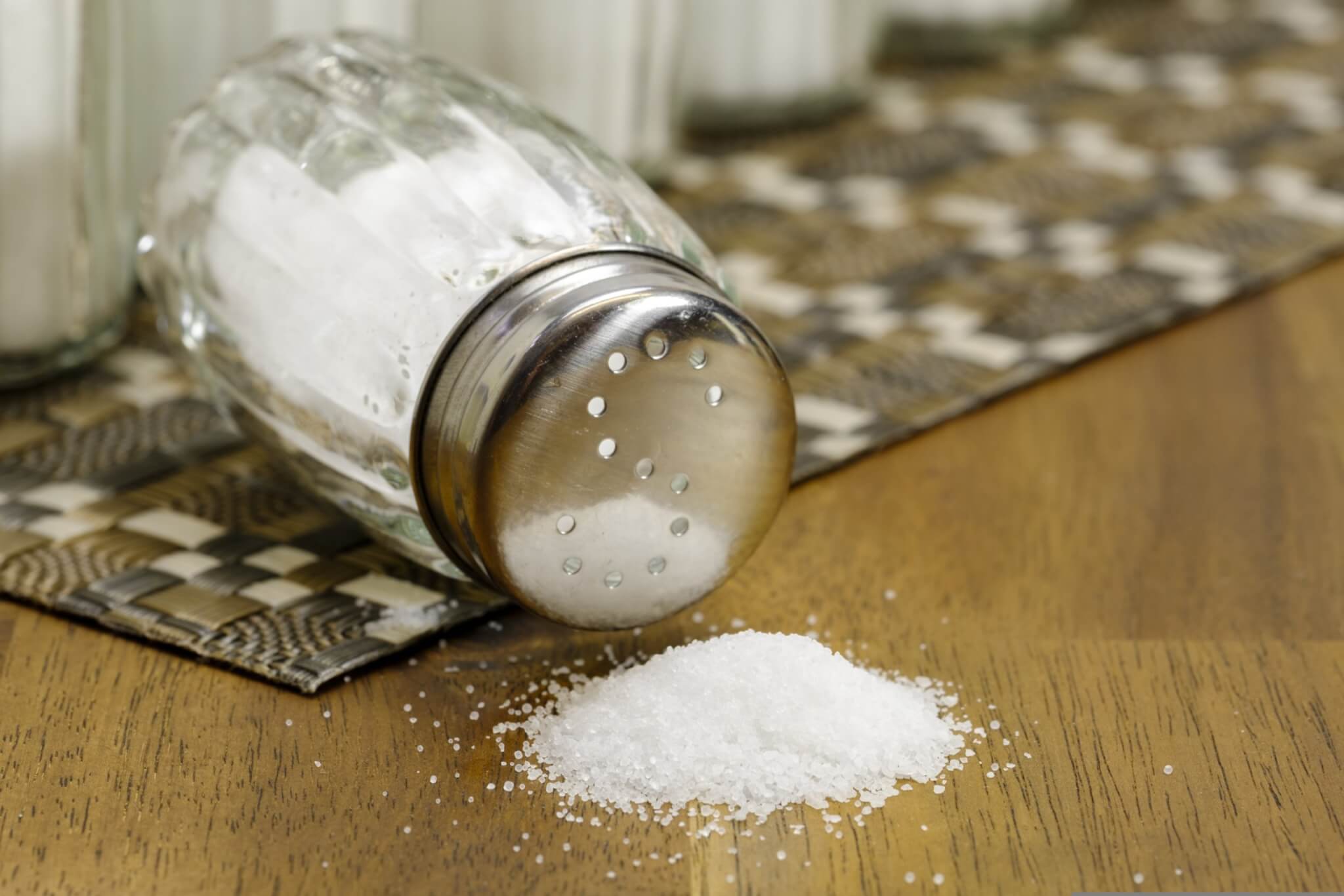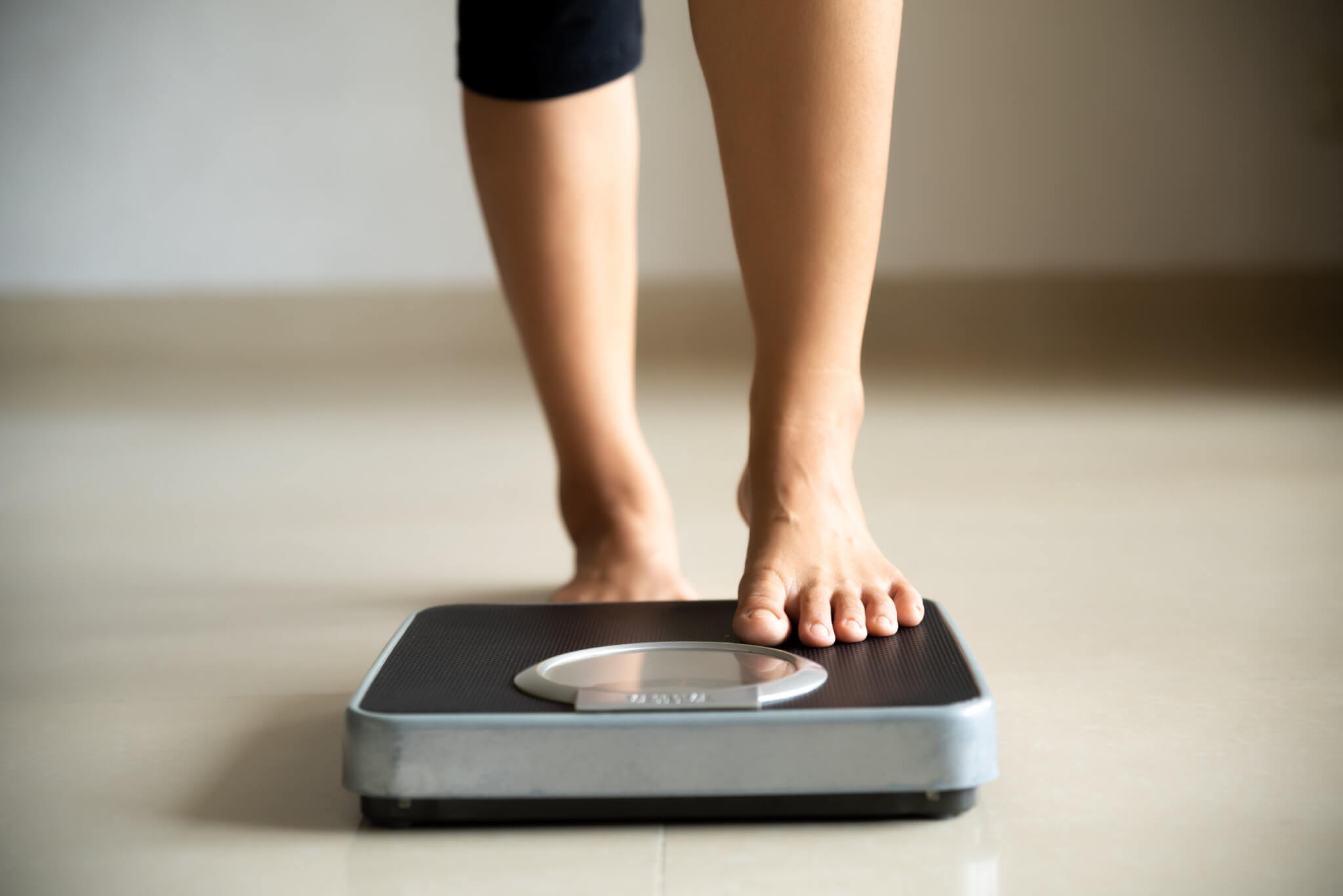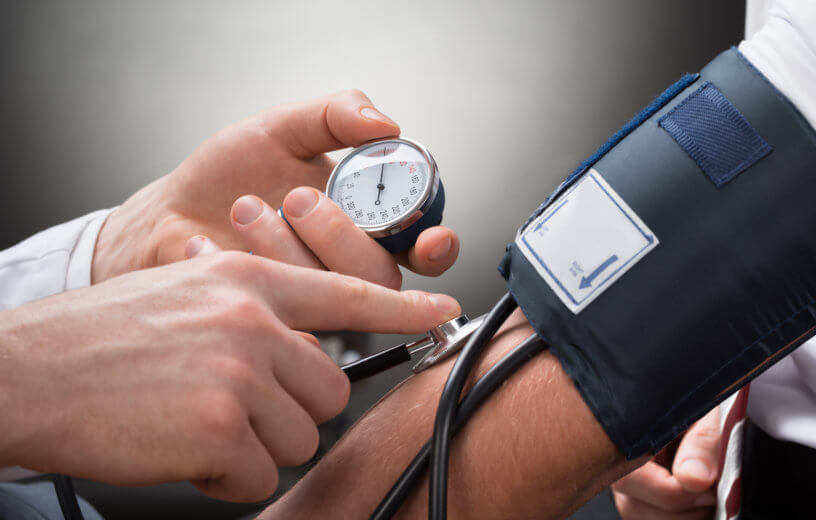High blood pressure can damage arteries, and in doing so it’ll lead to less blood and oxygen flowing to the heart. The ugly result of this, if left unchecked, is heart disease. Chances are, if you have high blood pressure, your doctor, and probably significant other, have been trying to convince you to take action, to get your readings in check. And if you’re looking for strategies on how to do it, we’ve got you covered. We searched the web, scouring health sites, to bring you the top expert-recommended best ways to lower blood pressure, and we’ve created a list here for you.
What you may not know is there could be a sneaky culprit causing that high blood pressure of yours. Research finds that using a mobile phone for just 30 minutes a week may increase the risk of high blood pressure, a leading cause of heart attacks and strokes. Yes, your cellphone could be putting you at risk. Participants of a study who spoke on a mobile phone for 30 minutes or more per week saw their risk for high blood pressure rise in comparison to those who used their phones less frequently. The team tracked the participants for an average of 12 years. The research also revealed that weekly usage times of 30-59 minutes, one to three hours, four to six hours, and more than six hours were associated with increased risks of eight, 13, 16, and 25 percent, respectively. These figures were compared to participants who spent less than five minutes per week making or receiving calls. This is scary, but if you’re in your 30s with high blood pressure, the news gets more frightening.
Research shows that having high blood pressure in your 30s makes it more likely you’ll experience failing brain health in your 70s. We’re talking dementia and Alzheimer’s. The findings come from looking at brain scans of older adults who had a history of high blood pressure when they were 30 to 40 years-old with older adults who had normal blood pressure at that age. The high blood pressure group showed lower brain volumes and defects in their white matter. Both of these brain changes have a connection to dementia onset. And it looks as though men have more to worry about: Men with high blood pressure in their 30s showed more decreases in gray matter volume and frontal cortex volume. The authors explain that the high levels of estrogen women have before menopause may protect the brain from the effects of high blood pressure. This is a good enough reason to take action now and lower those blood pressure numbers.
To a long, healthy life! Below is our list of the top five best ways to lower blood pressure, according to health experts. Of course, we want to hear from you. Which strategy do you use to keep your blood pressure readings in healthy ranges? Comment below to let us know!
The List: Best Ways to Lower Blood Pressure, According to Experts
1. Exercise Regularly
Many people avoid exercise due to the discomfort it causes, but that discomfort is healing in so many ways. Building your strength and stamina in the gym will carry over into everyday life. Not only that, but the regular blood flow that comes from exercise will greatly increase your overall health. It’s simple, if you want to be healthy you must exercise.

The NIH writes, “All you need is 30 minutes of moderate-level physical activity on most days of the week. Examples of such activities are brisk walking, bicycling, raking leaves, and gardening.” Finding activities you enjoy is key so that you’re more likely to stick with them. Adding exercise into your life doesn’t necessarily mean lifting weights, there are plenty of beneficial options. They go on to share some easy methods to incorporate exercise into your lifestyle: “Use stairs instead of an elevator, get off a bus one or two stops early, or park your car at the far end of the lot at work. If you already engage in 30 minutes of moderate-level physical activity a day, you can get added benefits by doing more. Engage in a moderate-level activity for a longer period each day or engage in a more vigorous activity.”
“It’s no secret that regular physical activity helps to keep you in good health,” writes Penn Medicine. They say, “Not only does exercise help control high blood pressure, it also helps you manage your weight, strengthen your heart and lower your stress level. “While any type of aerobic activity (walking, jogging, dancing) has a positive impact on heart health, try to find something you enjoy doing. This will make it easier to commit to a regular routine and will motivate you to get up and moving.”
The Mayo Clinic writes, “Exercise can also help keep elevated blood pressure from turning into high blood pressure (hypertension). For those who have hypertension, regular physical activity can bring blood pressure down to safer levels.” And in addition to the activities listed above, they also recommend high-intensity interval training. “This type of training involves alternating short bursts of intense activity with periods of lighter activity. Strength training also can help reduce blood pressure. Aim to include strength training exercises at least two days a week. Talk to a health care provider about developing an exercise program.”
2. Limit Alcohol Intake
Alcohol is thought of as a culprit for many of life’s ailments, but high blood pressure isn’t typically one that comes to mind. Regardless, it ranks high on experts’ lists as a “must limit” when it comes to reducing high blood pressure.

“Alcohol can raise your blood pressure, even if you’re healthy,” writes Healthline. “It’s important to drink in moderation. According to a 2006 study, alcohol can raise your blood pressure by 1 mm Hg for each 10 grams of alcohol consumed. A standard drink contains 14 grams of alcohol. What constitutes a standard drink? One 12-ounce beer, 5 ounces of wine, or 1.5 ounces of distilled spirits. Moderate drinking is up to one drink a day for women and up to two drinks per day for men. They also share that “A review found that although drinking more than 30 grams of alcohol may initially lower blood pressure, after 13 hours or more, systolic blood pressure increased by 3.7 mm HG and diastolic blood pressure increased by 2.4 mm Hg.”
The Cleveland Clinic writes: “Drinking alcohol puts you at risk of developing high blood pressure. And if you’ve already been diagnosed with high blood pressure, alcohol may be a contributor. Dietary Guidelines for Americans defines ‘moderate drinking’ as two drinks or less per day for men and one drink or less per day for women. But your height, weight and overall health all play a role in what’s safe for you, as an individual, so ask your healthcare provider for more personalized insight.”
The NIH reminds that alcohol affects more than just blood pressure: “It also can harm the liver, brain, and heart. Alcoholic drinks also contain calories, which matters if you are trying to lose weight.” They recommend that “If you drink alcoholic beverages, drink only a moderate amount—one drink a day for women, two drinks a day for men.”
3. Limit Sodium Intake
This has been recommended for so long it almost seems like a folk tale. But it’s not, it’s true, and necessary if you have high blood pressure. You may be surprised at how much sodium is hiding in unsuspecting foods. Reading labels is the only way to know for sure how much sodium you’re intaking daily.

Harvard Health Publishing writes: “Americans eat far too much dietary sodium, up to three times the recommended total amount, which is 1,500 milligrams (mg) daily for individuals with high blood pressure, says Dr. Fisher. It doesn’t take much sodium to reach that 1,500-mg daily cap — just 3/4 of a teaspoon of salt. There’s half of that amount of sodium in one Egg McMuffin breakfast sandwich. Weed out high-sodium foods by reading labels carefully. ‘It is very difficult to lower dietary sodium without reading labels, unless you prepare all of your own food,’ says Dr. Fisher.”
“The American Heart Association recommends that people with hypertension keep it under 1,500 milligrams a day. Check your food labels to see how much you’re getting. If you cut back gradually, you’re less likely to notice the difference. Limiting sodium to just 2,400 milligrams per day can lower your number 2 to 8 points.” And as for how lower your sodium intake, “One way to cut back is to prepare your food at home. Seventy-five percent of your sodium intake comes from eating out and packaged foods. Use more spices for flavor instead of salt. Eating more potassium (found in foods like bananas, raisins, tuna, and milk) helps move sodium out of your body. A small effort can bring blood pressure down as much as two to eight points,” mentions WebMD.
Forbes says, “When you eat too much salt, it increases the amount of fluid that enters the bloodstream and arteries from the surrounding tissue, which raises the pressure in the arteries…While you may not have to remove salt from your diet completely, avoid foods very high in salt like chips, French fries, salted nuts, soups, store-bought salad dressings, processed foods and cheese.”
4. Lose Weight
If you’re carrying extra weight, more than is healthy for your frame, experts recommend getting serious about losing it. Yes, it’ll lower high blood pressure, but it’ll also benefit your health in so many other ways. Extra weight only makes the body work harder during each and every task.

The Cleveland Clinic understands that “it’s almost never as simple as, ‘Just lose weight.’ Weight is a nuanced, complex topic, and lots of medical and lifestyle-related factors play a role.” For this reason, they recommend following the other five recommendations on their list: eating less salt, eating more potassium, adopting the DASH diet, getting physically active, and limiting alcohol intake and weight will naturally start to come off. Importantly, they note that “Every loss of 2.2 pounds should result in a drop of 1 mmHg in blood pressure.”
Medical News Today agrees: “Losing weight can help your blood vessels do a better job of expanding and contracting, making it easier for the left ventricle of the heart to pump blood.” They say the bottom line is that losing weight is an effective strategy to lower blood pressure and pairing it with exercise creates synergy to enhance results.
“Weight loss is an important part of reducing high blood pressure, especially for people with obesity, as it’s a strong risk factor for hypertension,” writes Forbes. “Talk to your doctor or registered dietitian about a safe weight loss plan that will work for you, or consider trying a support app like Noom. ‘Even modest weight loss in these patients—4 to 10 pounds—is associated with a significant reduction in blood pressure levels,’ says Dr. Mehta. However, a 2013 study of more than 740 people found long-term reductions in blood pressure only persisted with weight loss exceeding 2% of the person’s initial weight.”
5. Reduce Stress
We won’t preach mindfulness and meditation, but they work in this department. Regardless of how you go about it, lowering stress will lower blood pressure. If meditation isn’t your thing, you may try avoiding situations that you know will make your blood boil. Or revert to number one on our list and take out your stress on the weights – they can take it!

“We all have stress in our day-to-day lives—a flat tire in the middle of rush hour, a looming deadline at work—that can cause a temporary spike in blood pressure,” writes Penn Medicine. “In most cases, once the stressful situation is resolved, your heart rate and blood pressure return to normal. However, chronic stress may put you at risk for a variety of long-term health issues, including high blood pressure, heart disease and stroke. Stress can also increase your blood pressure levels if your coping mechanisms involve eating unhealthy food, drinking alcohol or smoking.” They go on to say that “While it’s impossible to eliminate all stressors from your life, learning to cope with them in a healthier way can make a positive impact on your health and wellness—which can in turn lower your blood pressure.”
According to the Mayo Clinic “Long-term (chronic) emotional stress may contribute to high blood pressure. More research is needed on the effects of stress reduction techniques to find out whether they can reduce blood pressure. However, it can’t hurt to determine what causes stress, such as work, family, finances or illness, and find ways to reduce stress.” They recommend the following strategies for lowering stress: “Avoid trying to do too much. Plan your day and focus on your priorities. Learn to say no. Allow enough time to get done what needs to be done. Focus on issues you can control and make plans to solve them. For an issue at work, talk to a supervisor. For conflict with kids or spouse, find ways to resolve it. Avoid stress triggers. For example, if rush-hour traffic causes stress, travel at a different time or take public transportation. Avoid people who cause stress if possible. Make time to relax. Take time each day to sit quietly and breathe deeply. Make time for enjoyable activities or hobbies, such as taking a walk, cooking or volunteering. Practice gratitude. Expressing gratitude to others can help reduce stress.”
“We live in stressful times. Workplace and family demands, national and international politics — they all contribute to stress. Finding ways to reduce your own stress is important for your health and your blood pressure,” adds Healthline. “Practice deep breathing, take a walk, read a book, or watch a comedy. Listening to music daily has also been shown to reduce systolic blood pressure.” They also note that “A 20-year study showed that regular sauna use reduced death from heart-related events. And one small 2015 study has shown that acupuncture can lower both systolic and diastolic blood pressure.” As with exercise, you’ll want to find the strategy that you enjoy so that you’ll adopt it as a life-long habit.
You may also be interested in:
- Best Ways to Lower Cholesterol
- Best Ways to Alleviate Stress
- Best Ways to Improve Sleep
- Best Ways to Prevent Wrinkles
Sources:
- Penn Medicine
- Mayo Clinic
- Healthline
- Medical News Today
- Harvard Health Publishing
- WebMD
- Forbes
- Cleveland Clinic
- NIH
Note: This article was not paid for nor sponsored. StudyFinds is not connected to nor partnered with any of the brands mentioned and receives no compensation for its recommendations. This post may contain affiliate links.
